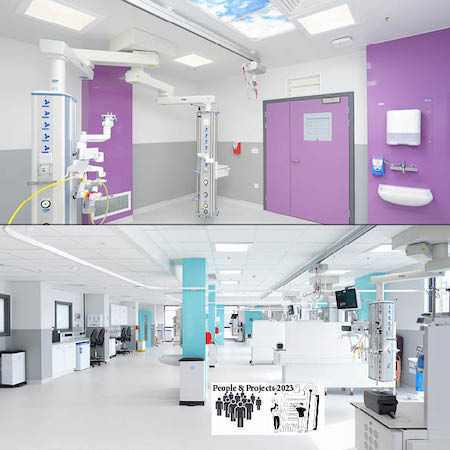In its 2022/23 ‘The State of Health Care and Adult Social Care in England’ report the Care Quality Commission (CQC) describes a system that has experienced a “turbulent” year, and within which factors such as the cost of living crisis, rising costs for social care providers, the failure of Local Authority budgets to keep pace with rising costs and ongoing workforce challenges are creating significant risks around the quality and availability of care. The scenario painted in the report describes an increasingly unfair and unequal two-tier system, within which those who can afford to pay do so, and those who can’t face long waiting times, reduced access to care and are forced to make difficult decisions that may impact on their quality of life.
In the introduction to the report, CQC Chief Executive Ian Trenholm and Chair Ian Dilks point out that many of the challenges described come as a result of lack of any kind of joined-up approach to planning, investment or delivery of care, which the arrival of Integrated Care Systems (ICSs) should start to address. However, they also point out that not all ICSs have timeframes and measures to act on their equality and health inequality objectives. “All systems near clear and realistic goals, and support to achieve these, that reflect how they will address unwarranted variations in population health and disparities in access, outcomes and experience of health and social care,” they state.
Key points of the report
• Getting access to services remains a fundamental problem, particularly for people with protected equality characteristics. Along the health and care journey, people are struggling to get the care they need when they need it.
• Record numbers of people are waiting for planned care and treatment, with over seven million people on elective care waiting lists at June 2023. But the true number of people could be much higher, as some people who need treatment are struggling to get a referral from their GP.
• In the community, people are facing ongoing struggles with getting GP and dental appointments. As a result, some people are using urgent and emergency care services as the first point of contact, or not seeking help until their condition has worsened.
• Once at hospital, people are facing longer delays in getting the care they need. In 2022, over half (51%) of respondents to the CQC's urgent and emergency care survey said they waited more than an hour before being examined by a nurse or doctor, up from 28% in 2020.
• Insufficient capacity in adult social care is continuing to contribute to delays in discharging people from hospital. Ongoing staffing and financial pressures in residential and community services are having an impact on the quality of people’s care, with some at greater risk of not receiving the care they need.
Responses to the report
Matthew Taylor, Chief Executive of the NHS Confederation says: “This sobering report lays bare the critical state that the NHS is in and should provide a salutary warning to political leaders about the abundance of issues facing the health service and the scale of the recovery task ahead.
“After a decade of under-investment in staff, buildings and infrastructure, it is no surprise that we are in this position. We now need a credible plan that helps NHS leaders recover services and rebuild public confidence in what has always been one of the UK’s most valued institutions.
“The report is rightly at pains to point out that there is good work happening across all of the sectors in very tough conditions, particularly around mitigating the risks of staffing shortages, but health leaders will all too readily recognise the many intractable problems outlined within it.
“This should make for deeply uncomfortable reading for the government, with crises on multiple fronts meaning much more help is needed if the gridlocked care system is to have any hope of getting back to where it was in terms of performance a decade ago.
Sally Warren, Director of Policy at The King’s Fund says: “This comprehensive report reveals the sad reality that the quality of care that patients need and deserve is not being met in many parts of the NHS and social care. The analysis makes it painfully clear that inequality in access to care and in health outcomes is still rife.
“Public satisfaction with the NHS is at a record low. Despite this, and despite signs that some people are paying for care out of their own pocket while others simply go without, public support for the founding principle of NHS services being free at the point of use remains rock solid. History has shown us that a slow slide towards a two-tier health service can be avoided through a concerted effort to bring down NHS waiting lists, led and funded by government.”











